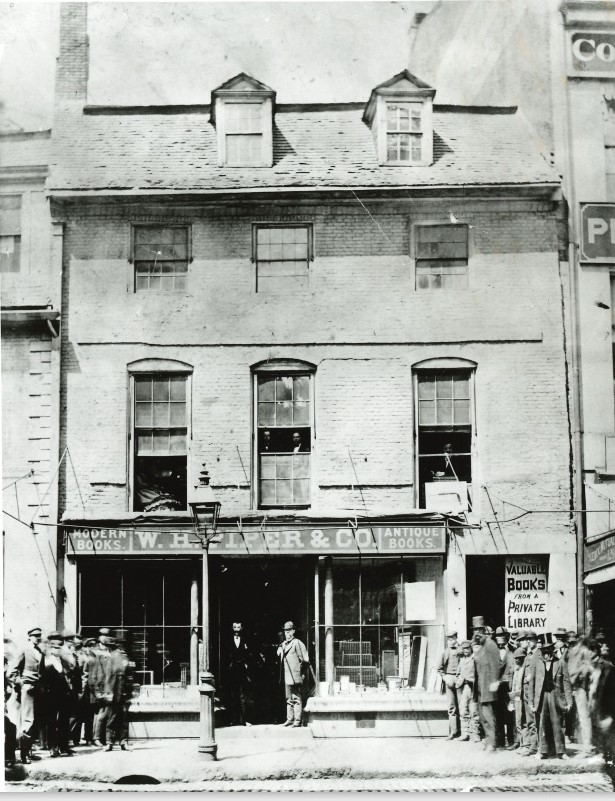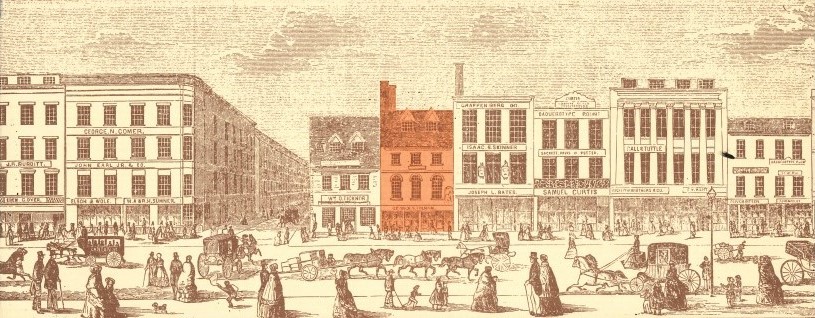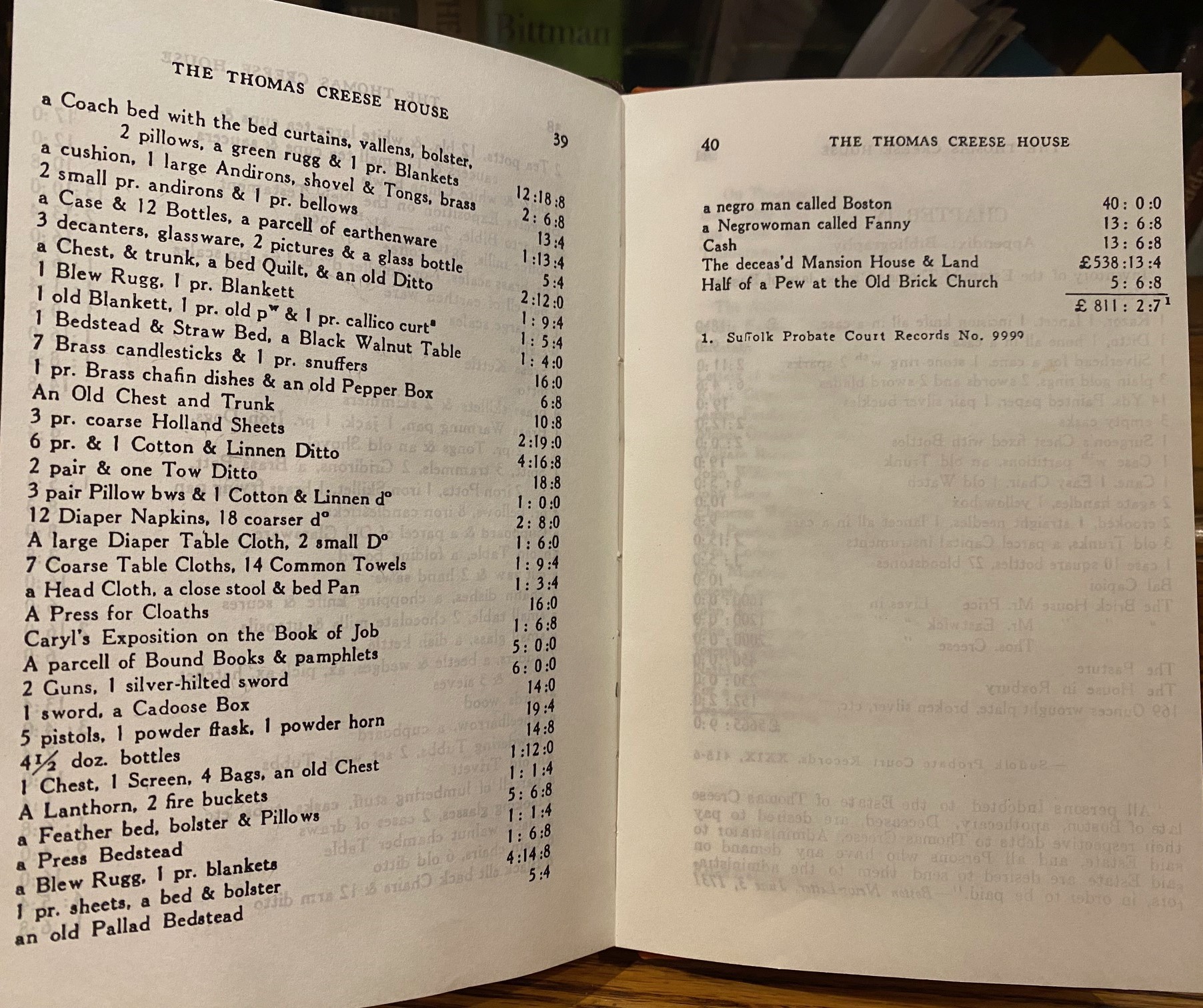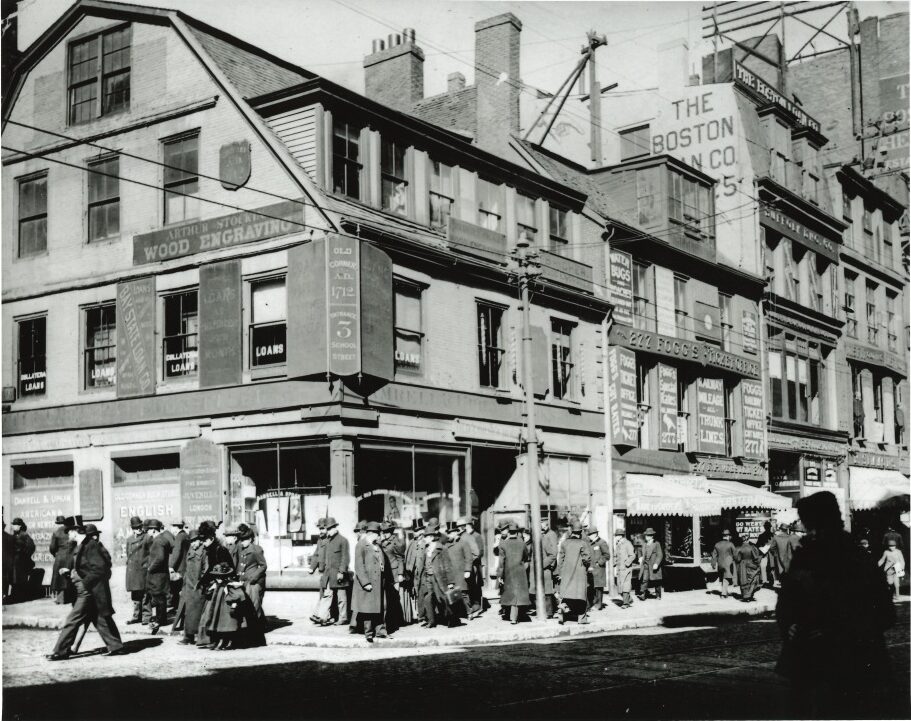
18 Jun 2024 Boston and Fanny lived here
In recognition of Juneteenth, Historic Boston shares the Old Corner Bookstore’s ties to slavery.
As HBI researches the history of the Old Corner Bookstore in order to plan its future, we’ve been learning about some of the many individuals and businesses that occupied these buildings over the last 306 years.
A Historic Structures Report detailing the buildings’ evolution was written in 2000 and includes a list of occupants that were known to have owned or rented space in the Old Corner Bookstore complex, including the 1728 Andrew Cunningham House which now houses Dig restaurant and HBI’s offices. But only recently did we learn the names of two individuals who lived here who were not listed on deeds, census, or directories. Their names were Boston and Fanny, and their names appeared in an inventory attached to the Suffolk County probate record for Andrew Cunningham at his death in 1752. Boston is described as “a negro man,” and Fanny as “a negro woman.”

1855 illustration of the Old Corner Bookstore complex. The Cunningham House is highlighted in orange.
We don’t know much about Andrew Cunningham, the original owner of 277 Washington Street (at that time 75 Cornhill Street), which was built as his residence and is attached to the Old Corner Bookstore. Cunningham was a glazier, and presumably a successful one based on the large brick home he built for himself and his family. The inventory of his belongings is extensive: furniture, tools, kitchenware, linens, weapons, mirrors, silver, and many other household items and even a bed pan. Along with each item, a value was assigned in British pounds. The highest value assigned on the list, other than the house and land, was for the enslaved man Boston, who was valued at 40 pounds. Fanny’s value was listed as just over 13 pounds – only a little more than the family Bible and significantly less than the silver.

1752 Suffolk Probate Court Records list Boston and Fanny among Andrew Cunningham’s belongings on p.40. (John Perkins Brown and Eleanor Ransom. The Thomas Creese House Boston, Massachusetts : being the description of a typical townhouse of the early eighteenth century and containing a history of the site thereof from the time of Anne Hutchinson to the present day. 1940.)
It seems unlikely we will be able to find out much more information about Boston and Fanny’s lives. Were they a couple? Parent and child? Were they born in this city or brought here by ship to be sold at auction? Was Boston a skilled craftsperson who helped build the Cunningham house? After Andrew Cunningham’s death, his heirs retained ownership of the house, so perhaps Boston and Fanny stayed on as well.
The City of Boston’s Archaeology program has compiled a list of known enslaved people in Boston as part of their Slavery in Boston exhibit at Faneuil Hall, and WGBH has mapped ties to slavery at 17th and 18th century sites along the Freedom Trail. Yet many Bostonians are unaware of this region’s history of slavery in the 17th and 18th centuries. The Old Corner Bookstore has long been celebrated as the home of Ticknor and Fields, whose publications included the works of prominent abolitionists. But history is complex, and a fuller story of the Old Corner Bookstore and its many occupants needs to be uncovered and told.




